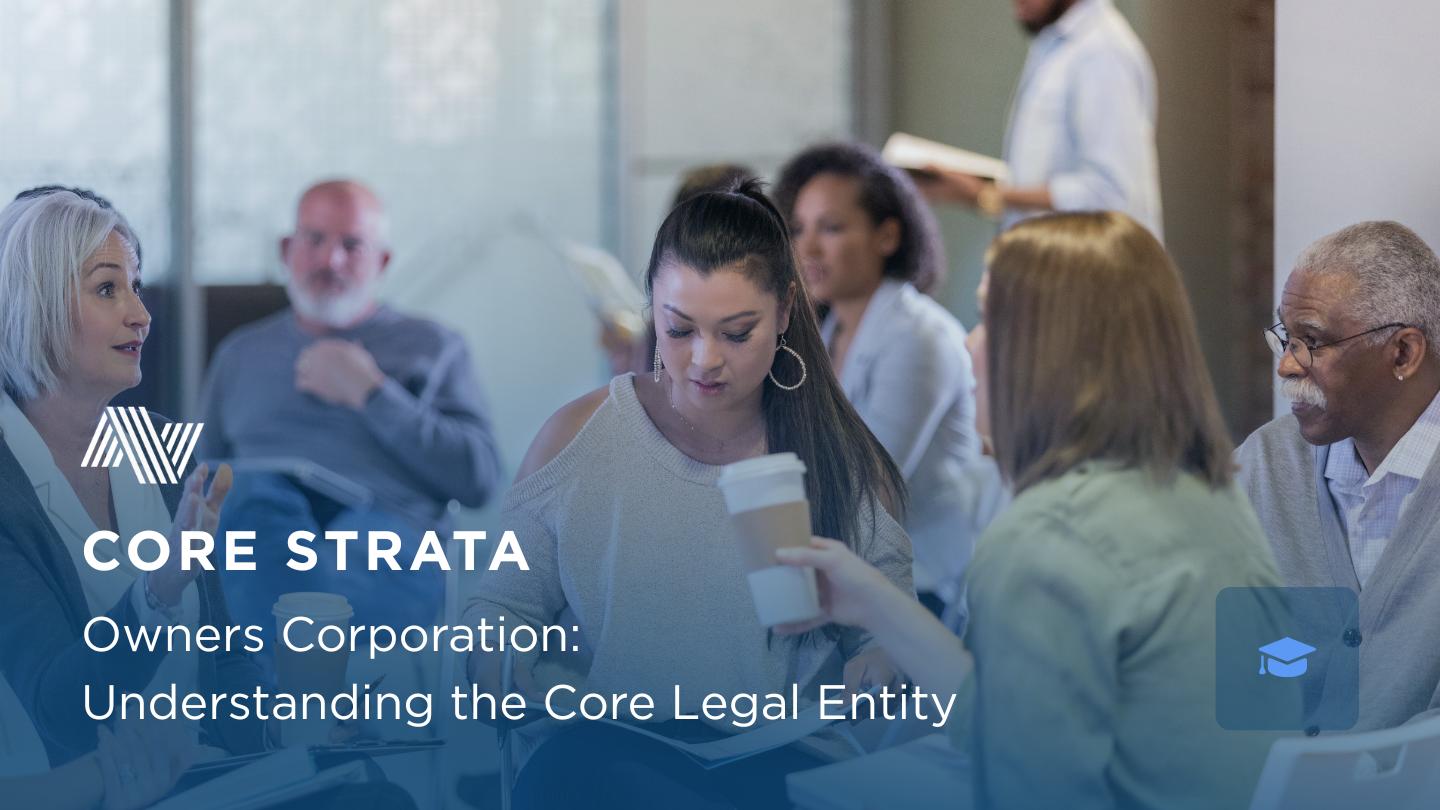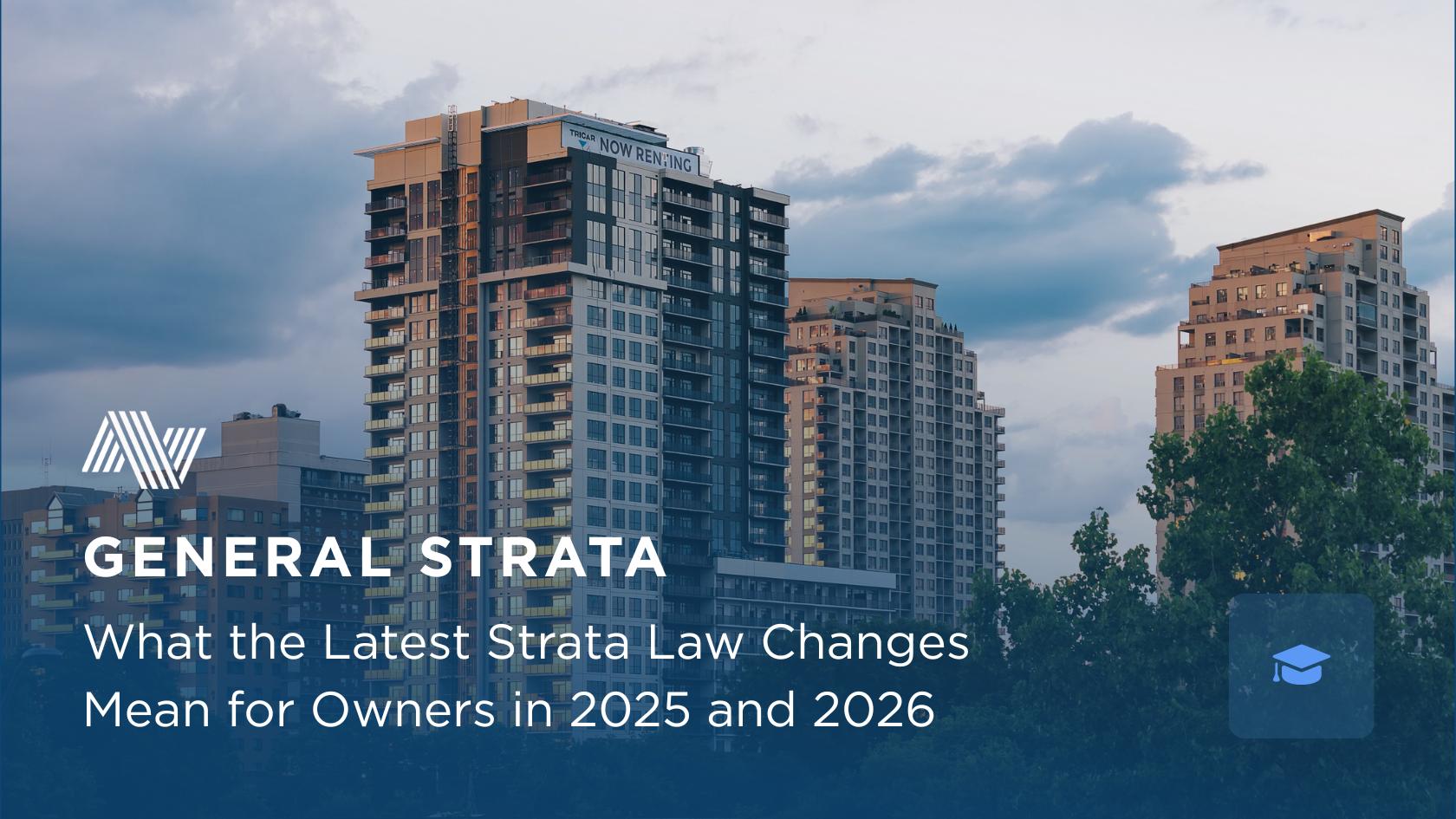Owners Corporation: Understanding the Core Legal Entity
Note: This article is intended as a general guide only, and should not be taken as legal or professional advice. It’s essential to consult with a qualified professional or seek advice from your managing agent if you have specific questions or concerns about strata living.


The One-Minute Guide to Owners Corporations
If you only read one section, here are the essentials:
Definition – The Owners Corporation (OC) is the legal entity that manages the strata scheme’s common property.
Responsibilities – Maintenance, compliance with laws, financial management, and collective decision-making.
Governance – A Committee of Owners (or Strata Committee) carries out day-to-day decisions on behalf of the OC.
Records – By-laws, minutes, registers, and other documents must be maintained.
Why It Matters – The OC is the backbone of every strata scheme: without it, shared property can’t be managed or protected.
Strata schemes don’t run themselves. In NSW, the Owners Corporation (OC) is the central legal entity that ensures the collective management of the scheme. It exists from the moment a strata plan is registered, separate from individual lot owners, and has defined powers, duties, and liabilities under the Strata Schemes Management Act 2015 (SSMA).
Understanding how the OC works is critical for lot owners, committee members, strata managers, and prospective buyers alike.
This article covers the three pillars of Owners Corporations:
- Roles & Responsibilities – what the OC does in practice.
- Structure & Governance – how the OC is run and who makes decisions.
- Key Records – what must be documented and why it matters.
Roles & Responsibilities: Managing the Strata Scheme
The Owners Corporation’s duties extend well beyond maintenance. It is responsible for:
- Maintaining and repairing all common property.
- Ensuring compliance with the SSMA and by-laws.
- Raising, managing, and spending funds through levies and budgets.
- Making collective decisions on behalf of owners.
- Providing services and facilities for owners and occupiers.
Who Needs to Know This?
- Lot Owners – Essential: levies fund these responsibilities.
- Committee Members – Critical: oversee and implement decisions.
- Strata Managers – Essential: often administer financial and compliance duties.
- Tenants – Helpful: responsibilities impact living conditions.
- Prospective Buyers – Valuable: strong OC management protects property value.
TL;DR: The OC is responsible for managing everything that affects shared property and community life.
Read more: Explore financial management in strata schemes.
Structure & Governance
The Strata Committee (Committee of Owners)
While every lot owner is technically part of the OC, practical decision-making is usually delegated to the Strata Committee
.
The Committee is responsible for:
- Carrying out resolutions of the OC.
- Managing finances, contracts, and repairs.
- Ensuring the scheme complies with its legal duties.
- Acting on behalf of all owners between general meetings.
Who Needs to Know This?
- Lot Owners – Essential: elect the committee to represent them.
- Committee Members – Critical: carry out day-to-day governance.
- Strata Managers – Essential: support or advise the committee.
- Tenants – Helpful: may be indirectly affected by committee decisions.
- Prospective Buyers – Useful: committee conduct indicates scheme stability.
TL;DR: The Strata Committee acts as the working arm of the OC, ensuring governance is practical and effective.
Read more: Committee Meetings & Decision-Making in Strata.
Key Records & Registers
Maintaining Transparency
To comply with the SSMA, the Owners Corporation must maintain accurate records. These include:
- By-Laws – Rules that govern owner and tenant behaviour.
- Minutes of Meetings – Records of decisions, votes, and resolutions.
- Registers – Ownership details, insurance policies, and strata roll.
- Financial Records – Budgets, levies, and expenditure reports.
Who Needs to Know This?
- Lot Owners – Essential: records confirm decisions and levy use.
- Committee Members – Critical: must ensure records are accurate.
- Strata Managers – Essential: usually administer registers and documents.
- Tenants – Helpful: by-laws and decisions directly affect them.
- Prospective Buyers – Valuable: records reveal scheme health and governance quality.
TL;DR: Records keep the OC accountable and ensure transparency in decision-making.
Why the Owners Corporation Matters
The OC is the legal backbone of every strata scheme — without it, shared ownership simply couldn’t function. A well-run OC ensures:
- Common property is properly maintained.
- Decisions are legally valid and enforceable.
- Funds are managed transparently.
- Owners, tenants, and buyers have confidence in the scheme.
TL;DR: A well-run OC protects property value, reduces disputes, and ensures fair governance.
Common Pitfalls
Avoid these issues that can undermine an OC’s effectiveness:
- Neglecting maintenance – leads to safety risks and reduced property value.
- Mishandling finances – underfunded budgets and levy arrears create shortfalls.
- Weak governance – committees that fail to meet or document decisions invite disputes.
- Incomplete records – missing minutes or registers may invalidate decisions.
Important: If you have concerns or questions about your Owners Corporation, speak with your strata manager or a licensed strata professional. For more details, refer directly to the Strata Schemes Management Act 2015.
Related Files










